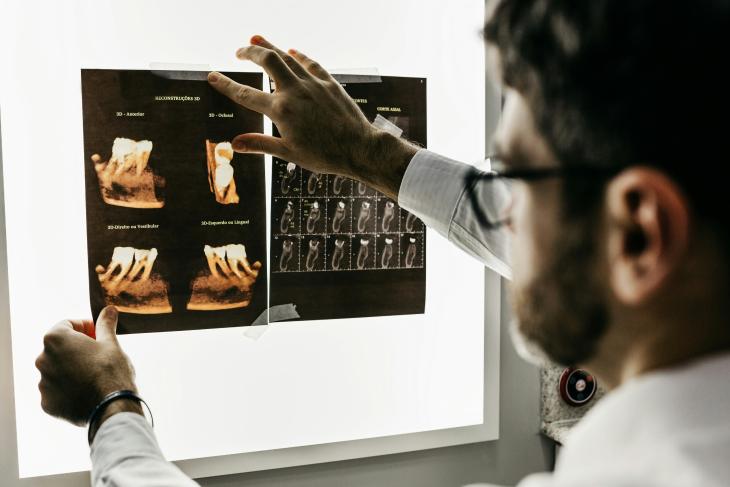This is a guest post from our friends at Blue Finch Dental in Fulham, to help raise awareness of Menopause Month.
Most women will go through menopause naturally between the ages of 45 to 55, with symptoms possibly starting between 4 to 8 years before the final period. The average age to go through menopause in the UK is 51. Women of colour experience menopause around the age of 49, often with more intense & protracted symptoms (Swan Study 2022). For some, sudden menopause may be experienced much sooner as a consequence of surgery, medical treatment, or for reasons that we just don’t know.
The hormonal changes that take place during menopause mean the gums may become more susceptible to plaque and thus leading to a higher risk for gingivitis (mild gum disease) and periodontitis (more advanced gum disease) (2). Other changes in the mouth may include a dryer mouth due to changes in saliva, increasing risk of oral thrush, caries (holes in teeth) and, more rarely, sensation changes such as burning mouth syndrome (3).
Your general bone health (bone density) may be a risk indicator for gum disease. Loss of bone density after menopause may be coupled with greater risk of gum disease. Therefore, avoidance and careful management of osteoporosis after menopause may have benefits (1). Prior to some treatments for osteoporosis, for, example the use of alendronate or Fosomax medications, it is strongly recommended to have a complete dental exam (4).

What can you do right now to reduce your risk of gum disease during menopause? As with most things in life the first line of treatment is education and prevention. In other words: maintain flawless oral hygiene habits to remove plaque and tartar from the mouth minimum twice a day (1). If you are not sure about how to do this - your dental team will be able to educate you. Remember 80% of gum disease prevention is determined by how you care for your teeth and gums at home. Your dental team should also monitor your gum health as part of regular dental examinations.
Note: The evidence is poor about the direct correlation of the menopause, or an oestrogen-deficient state, to susceptibility to gum disease. However there is growing evidence that the occurrence of gum disease is greater in post-menopausal women not using hormone therapy when compared to those women using hormone therapy (1,3).
This post was written by Dr Timothy Neill at Blue Finch Dental, a family and cosmetic dental clinic in Fulham. Learn more at www.bluefinchdentalfulham.com, call 020 7046 1868 or use the directions below.
References
-
Dutt P, Chaudhary S, Kumar P. Oral Health and Menopause: A Comprehensive R
-
eview on Current Knowledge and Associated Dental Management. Ann Med Health Sci Res. 3(3): 320–323; 2013.
-
Rukmini J, Sachan R, Sibi N, Meghana A, Malar C Effect of Menopause on Saliva and Dental Healt. Journal of International Society of Preventive and Community Dentistry 8(6); 529-533; 2018.
-
Haas N, Rösing C, Oppermann R, Albandar J, Susin C. Association among menopause, hormone replacement therapy, and periodontal attachment loss in southern Brazilian women. J Periodontol. 80:1380–7; 2009.
- National Institute of Health and Care Excellence (NICE). Bisphosphonstes and Osteoporosis- Guidance. https://www.nice.org.uk/guidance/ta464. Recovered 30 August 2024.
Our Barnes Clinic
Our clinic is located in Barnes, South-West London and is easily accessible by public transport.
For more information including parking and other practicalities see our Barnes clinic page
Book an Appointment
Booking an appointment with one of our therapists is quick and easy. There is no long waiting time and you don’t need a referral from your GP.









